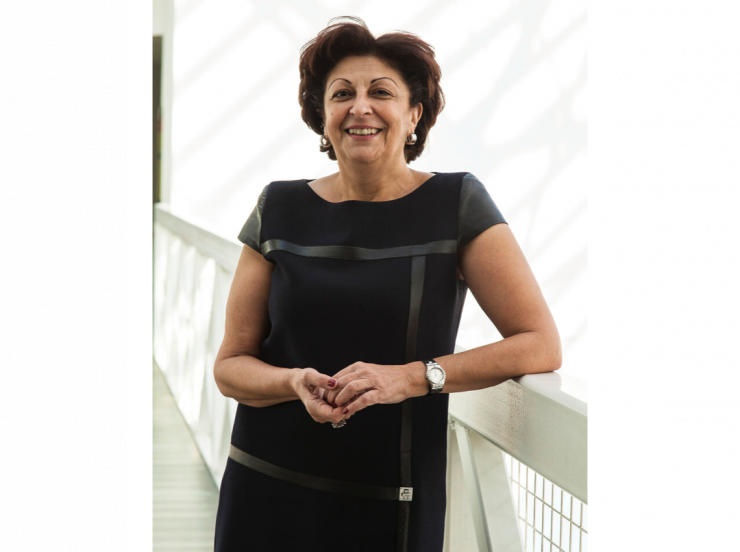Juin 2020
Entretien
Spotlight on... Shérazade Poursartip

Lisez cet entretien en français
Shérazade Poursartip is originally from Iran, but has lived in Hamburg, Vienna, Rome, Madrid, Tehran and Geneva. She speaks German, French, English, Spanish and Farsi. With such an international background, she seemed destined to become a translator and interpreter. In 1978, she obtained her diploma in translation (German, French, English) from the School of Translation and Interpreting (which became the Faculty of Translation and Interpreting in 2011). The year after, she added Spanish to her language combination, then received her interpreting diploma a year later (German, French, English, Spanish). She has been a freelance interpreter throughout her entire career. Her numerous public and private clients include the European Commission, European Parliament, The International Court of Justice in The Hague, the World Economic Forum meeting in Davos, as well as banks, medical conferences and pharmaceutical groups. Since 1984, she has taught consecutive and simultaneous interpreting classes in her various languages at the Faculty of Translation and Interpreting (FTI). She has also taught general master classes on simultaneous interpreting.
What does being an interpreter and teaching interpreting mean to you?
I love this job because you come into contact with a myriad of different topics and end up acquiring so much general knowledge. I find it fascinating to get to know and understand the culture and psychology behind each language. As for teaching, I see myself as a conduit or catalyst. I find it interesting to teach my students how to overcome difficulties and lead them to successfully do something they were unable to do before.
I also enjoy having contact with people, although there have been a great deal of changes in the profession. When I first began working forty years ago, there was much more human contact and we travelled a lot. We worked with huge dictionaries and received all the documents to prepare for meetings by mail. Then the world switched to computers. For example, the invention of PowerPoint presentations changed many things. Interpreters no longer receive as much information before a conference – just a summary. The presentations provide the illusion that the speaker is communicating freely, but in reality, they have memorised their text. They are therefore “reading” something that we have not been given ahead of time, which presents a particular challenge. People also talk more and more quickly and conferences are shorter. It’s no longer the same profession.
How were the last few months for you in terms of the quarantine and online teaching?
From a professional perspective, it was a shock. My work at the FTI is only a small part of my activities. One after another, my clients cancelled contracts and my income dropped drastically. As for teaching, it took a lot of effort to quickly pick up all the necessary technological skills. Since I love having contact with my students, in terms of morale, it was difficult to spend my final semester at the FTI in quarantine. You try to maintain that connection, but it’s not the same sitting behind a screen. Consecutive interpreting courses were manageable online, but simultaneous was a real challenge.
To conclude, what are your plans after retirement?
For now, I will continue working as an interpreter, both in the private sector and the international organisations, but I would like to stop at 70 because you have to make way for the next generation, those young interpreters I trained for so many years! Aside from that, I do volunteer work. The plight of migrants, and, particularly, female migrants, is an issue that greatly touches me. I am currently helping an Afghan refugee in Geneva. She has two children and is taking classes. I offer her general support, and help her with her French and homework.
